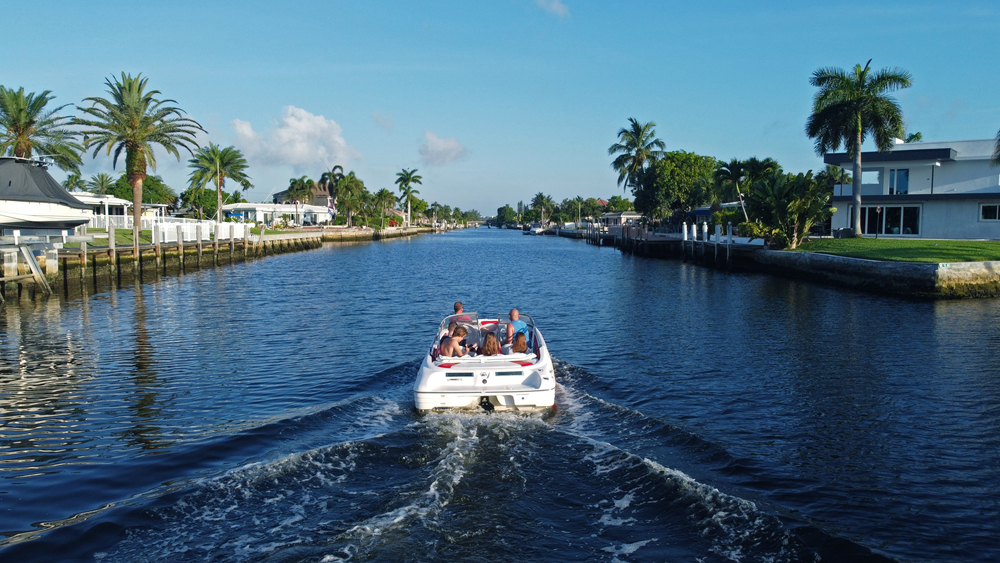Does homeowners insurance cover boats?

While just about every state in the country requires drivers to have car insurance to be legal out on the road, very few states require boat owner to carry boat insurance before they hit the water. Unfortunately, many boat owners mistakenly assume that homeowners insurance will help cover the costs related to a boating accident. In most situations, homeowners insurance offers very limited coverage for boats and other personal watercraft.
Keep reading to learn everything you need to know to keep your boat or other personal watercraft fully insured.
Does Homeowners Cover Boats and Personal Watercraft?
While it can vary by insurance company and your individual policy, in most cases, a homeowners policy only provides limited coverage for boats or watercraft. A typical policy will cap damage at $1,000 so if your watercraft is seriously damaged or stolen, you will be on the hook for the majority of the repairs.
Covered perils include:
- Fire
- Wind
- Explosions
- Hail
- Theft
- Vandalism
- Falling objects
- Theft
Hail damage is usually only covered if the watercraft is in an enclosed building. If you leave your boat or personal watercraft on the water or even in a covered slip, the damage will not be covered. It must be in an enclosed building.
It is important to remember that most homeowner policies have a deductible of at least $500 and in many cases, it is $1,000 or higher which would make a claim unnecessary as the policy only offers $1,000 in coverage.
Personal Property May be Covered
If you have personal property stolen from your boat, you may be able to use your homeowners insurance coverage but there can be major coverage limits. While it would cover the loss of a Bluetooth speaker or your phone, in most cases, built in equipment such as a stereo or fishing devices such as depth finders may not be covered. Check your policy for details on coverage and exclusions.
Liability Coverage for Boating Accidents
In most cases, the liability section of your homeowners policy may step up to help cover medical costs if you injury someone with your boat. However, there are limitations to the type of boat as well as the engine size and personal watercraft such as jet skis are almost always excluded.
Here is an example of motor restrictions related to boats when it comes to homeowners insurance:
- Inboard or inboard-outdrive: Less than 50 horsepower
- Outboard: Less than 25 horsepower
- Sailboat: Smaller than 26 feet
- Jet Ski: Not covered
- Air boat: Not Covered
As you can see, if you have a larger boat, one that has a bigger motor or even a jet ski, coverage will be very limited or even nonexistent. In most cases, if you own a boat you should consider a separate boat policy to fully protect the boat and you.
Boat Insurance Explained
Boat insurance is a lot like car insurance and provides the same types of protection. It typically offers the following coverages:
Collision: This covers the cost to repair or replace your boat if it is damaged or destroyed in an accident, up to your coverage limits. Boat insurance is typically offered as actual cash value which takes depreciation into account as well as agreed upon value which means you will be paid an agreed value if the boat is destroyed. When purchasing a policy you can choose your coverage levels as well as your deductible amount.
Liability: Boat insurance offers both bodily injury liability in the event you hurt someone with your boat, someone is injured on your boat or you damage another person’s property with your boat, up to your coverage limits.
Comprehensive: This will pay to repair or replace your boat if it is damaged by something other than a collision, hail or fire would be a good example. It also covers theft and vandalism.
Additional coverages: You may be able to purchase additional coverages for your boat that cover things such as fishing equipment, uninsured boaters, damage done by oil spills as well as roadside assistance coverage.
Cost of Boat Insurance
The cost to insure your boat will vary depending on several factors including the size, coverage limits, deductible you choose as well as where the boat is kept. In general, expect to pay between $200 and $600 a year.
